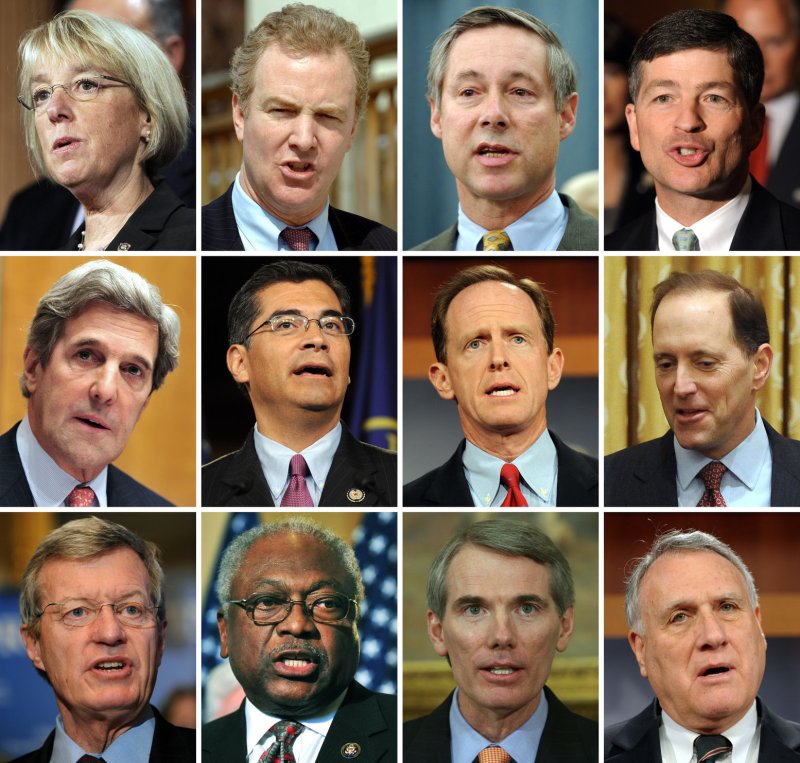The twelve members of the deficit reduction "super committee," seen in these UPI file photos, have all been named on August 11, 2011, in Washington, DC. Top row, L to R are: Sen. Patty Murray, D-WA; Rep. Chris Van Hollen, D-MD; Rep. Fred Upton, R-MI; Rep. Jeb Hensarling, R-TX; Middle Row from, L to R are: Sen. John Kerry, D-MA; Rep. Xavier Becerra, D-CA; Sen. Pat Toomey, R-PA; Rep. David Camp, R-MI; Bottom row, L to R are: Sen. Max Baucus, D-MT; Rep. Jim Clyburn, D-SC; Sen. Rob Portman, R-OH; and Sen. Jon Kyl, R-AZ. UPI |
License Photo
WASHINGTON, Nov. 15 (UPI) -- As a Thanksgiving deadline nears, members of the panel tasked with finding $1.5 trillion in U.S. budget savings are struggling toward a compromise, aides said.
Lawmakers also face a Friday deadline for passing legislation to keep the federal government running, the Los Angeles Times reported.
House Majority Leader Eric Cantor said Monday he expects Congress to keep the government running with a "positive vote in a bipartisan way" by midweek, the Times reported Tuesday.
The so-called supercommittee focused on taxes during its weekend talks on deficit reduction, The Washington Post reported. Democrats have pressed Republicans to increase their offer to generate about $300 billion in new tax revenue during the next decade through changes to the tax code that would lower rates but eliminate deductions, aides said. Republicans have indicated a willingness to go along, but only in exchange for additional reductions to Social Security and Medicare costs.
"The fact that members are still talking and working together is certainly an indication that the two sides remain flexible and interested in finding common ground," an aide familiar with the talks told the Times.
As the committee reviews proposals, both sides have begun considering a two-step approach that would put off major tax and spending issues until next year and the presidential election, insiders said. Under this plan, the panel would approve the framework of a deal, but direct tax-writing committees in both houses to work out the details that would be approved by Congress next year.
If the supercommittee can approve a package, Congress would have to hold an up-or-down vote by Christmas Eve. Failure to strike a deficit reduction deal would result in mandatory spending cuts shared by defense and domestic programs equally -- a scenario both parties say they want to avoid.
The panel bowed to bipartisan criticism of possibly counting as budget savings up to $700 billion that no longer would be spent on the wars in Iraq and Afghanistan, the Post said. The possibility was decried as an accounting gimmick.
Instead, aides from both parties said, the panel is considering using the savings to offset other priorities, such as extending emergency unemployment benefits and a temporary payroll tax cut, both due to expire at the end of this year.















